What Do You Need To Start A Podcast?
The podcasting game is strong and getting stronger. We’re honored to be a part of this flourishing industry full of truly incredible content creators. You might be wondering if starting a podcast is the right move for your brand. We’re here to tell you that podcasting isn’t going anywhere, in fact it’s just getting started. If you’re considering throwing your hat into the podcast arena, let us share some statistics that will truly blow your mind.
Check this out: As of today, 32% of Americans say they listen to podcasts on a monthly basis. There are currently an estimated 850,000 active podcasts and potentially more than 30 million individual podcast episodes have been released. Over half of all US consumers above the age of 12 say they listen to podcasts regularly and the Interactive Advertising Bureau predicts that podcast ad revenue in the U.S. will hit $2 billion by 2023. Lastly, it’s estimated that by 2024 there could be well over 100 million podcast listeners in the U.S. alone. So if you’re on the fence about starting your podcast, it’s time to go all in!
The good news is podcasting has low entry costs and a relatively easy production process. So if you’re just starting out, you don’t need to invest in tons of high-quality tools and recording equipment just yet.
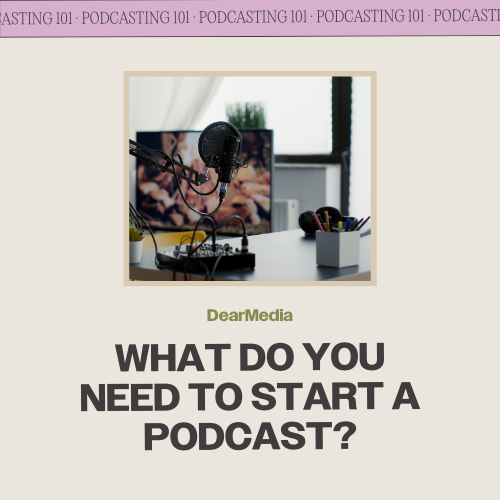
What Do You Need To Start A Podcast?
Below is a list of all the essential items you’ll need to initially launch your podcast. Keep in mind too, it’s totally okay to bootstrap when you’re just starting out. Putting out content is the first step to growing your audience. As you grow you can invest in better equipment, professional branding, etc. However the list below is really designed to get started without spending a ton of money.
A Computer:
You probably guessed this one! A computer is essential to podcasting. This is where all the audio files with the contents of your show will be recorded and edited. Since you will use podcasting apps and audio editing software, your computer should also have enough storage to store your audio files. Plus you’ll probably want a computer that is fast enough to make your work more enjoyable. You don’t want your computer freezing on you constantly. Also pro tip: if you’re using a laptop, consider investing in a separate mouse for a smoother editing process.
Noise-Cancelling Headphones:
Noise-cancelling headphones are another super important essential for starting a podcast because they’re going to block out any outside noise. With a good pair of headphones you don’t have to worry about low level sounds either. They will also make editing much easier too, as they will help you spot details you might miss by listening to the audio files directly from your computer’s audio system. Not sure which headphones to buy? Here is a list of the best budget friendly headphones that might come in handy.
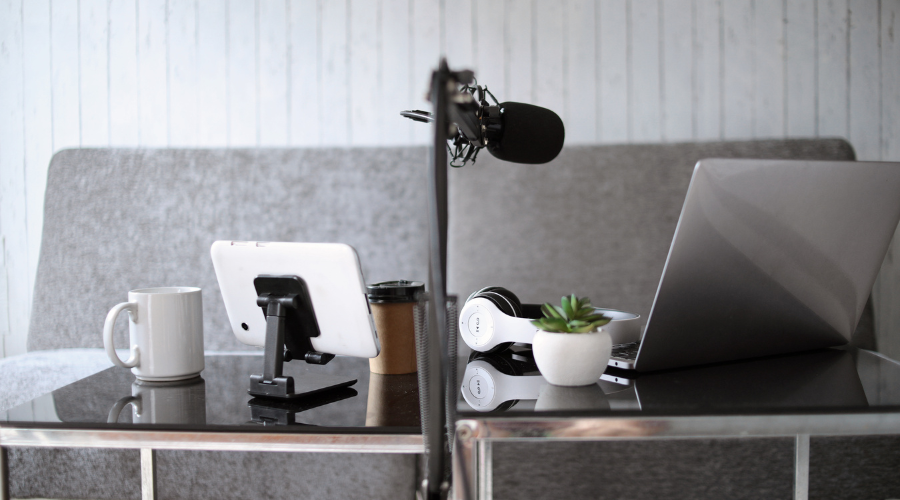
A Quality Microphone:
Voice is the start of all podcasts. If the quality of the voice recordings are bad, your podcast might come across as unprofessional. So investing in a microphone is key! To start, you will be fine with a USB mic setup. Just plug it into your computer and you are good to go. The quality of USB microphones has increased big time over the last few years, turning them into a worthy investment if you are serious about growing your podcast.
Basic Audio Recording & Editing Software:
Here’s when you have two options: to pay for a pro editing software or enjoy a more basic one for free. Both choices have their pros and cons, but you can definitely start by using a free program and upgrade to a paid software later in the game. Audacity is the best free option on the market, as it caters to all your podcasting needs. Adobe Audition is a fantastic software if you are sure you want to invest in a paid editing program right off the bat. Podcast editing is a crucial element for anyone who wants to record an episode, make any tweaks, and push it to the public, so give it some thought!
A Place To Record:
The bare minimum for a place to record should be a home office or a decently quiet room. The more isolated you are from outside noises, the better. A quiet, small space, with less sound reflecting surfaces is ideal. This will help with the quality of your recorded audio files. Plus, if you plan on inviting guests on your show for in person interviews, you’ll need a meeting place with a proper setup. You want your podcasting space to be comfortable for both you and your guests. So comfortable chairs, some bottled water, a back pillow, and someplace for refreshments might even be appreciated. Once your podcast is ready to go to the next level, you can even invest in renting studio time or working with a podcast production team like Dear Media that offers a professional studio setup.
A Podcast Theme, Brand, and Defined Target Audience:
Think about your initial idea. What is your podcast about? What type of content will you be producing? Who will you be talking to? What social media does your audience use more frequently? How will you create half an hour to an hour’s worth of content? What topics are they interested in? What topics are you, as a host, interested in? Is your communication style light hearted or more serious? What sets your podcast apart from the thousands of other shows? Are you speaking to men, women, mothers, single adults, etc.
These are the questions you should ask yourself before sitting down to record the first episode of your show. It will help you define the overall show tone. Plus knowing your audience and show theme will help you build out a podcast brand. So try to get as clear as possible related to the type of audience you’re targeting and what the general vibe of your podcast and individual episodes will be about.
If you want to know more about creating a brand, whether it is a brand for your podcast or any other business, listen to this episode of With Whit with Katherine Power: Staying Home With Whit | Katherine Power, CEO & Investor, on Building a Brand.

Choose a Name For Your Podcast:
Hopefully based on the overall subject and vibe of your podcast you have some inspiration already for a name. But if not, no worries! You can brainstorm to come up with the perfect name for your podcast. A podcast name should be unique to you, your content, and feel natural. Some podcasters like to include their name somehow, some come up with something witty, and others focus solely on the type of content they’re covering.
We recommend you take a look at all of Dear Media’s shows to get a feel for the different types of podcast names. Try to make your podcast name easy to remember. That way listeners can search for you, follow you, recommend your show to others, and you’re more likely to capture your audience. The last and most important thing to consider when choosing a name, is double checking that your name isn’t already taken! There are tons of content creators out there so you want to choose a unique, one of a kind name. Plus be able to reserve all of the social media handles and web URL too if you want.
Your Podcast’s Episode Format:
The sweet spot for a podcast’s length falls usually into the 20 and 40-minute mark, mirroring the time of an average commute. With that said, you shouldn’t worry too much about episode duration at the beginning of your podcasting journey. Instead focus on value and authenticity. Your listeners will eventually tell you if they think your episodes are falling a bit too short or too long. The key aspect of episode format has to do with the main format your podcast will stick to. Here are a few podcast format options to choose from:
- The Solo Show: This is a prolonged and entertaining monologue from you to the audience. The solo style podcast is you, with the mic, alone talking to your audience.
- The Co-Hosted Show: Grab a friend and get podcasting! Co-hosting with someone you work well with is an amazing choice. You two will be addressing the audience and creating all the content together.
- The Interview Show: For this type of podcast there is usually a solo host and a new guest during each episode. You will be borrowing the expertise and experience of others as you interview them on your show.
- Roundtable Show: This includes one regular host and a few guests that change every episode. Instead of an interview, you and the guests will be discussing and commenting on a variety of topics.
- Documentary / Docu-Drama Show: If you are familiar with true-crime podcasts, then you already know the drill on this format. The host guides the listeners through a series of information on a particular topic, teaching the audience about it in an entertaining way.
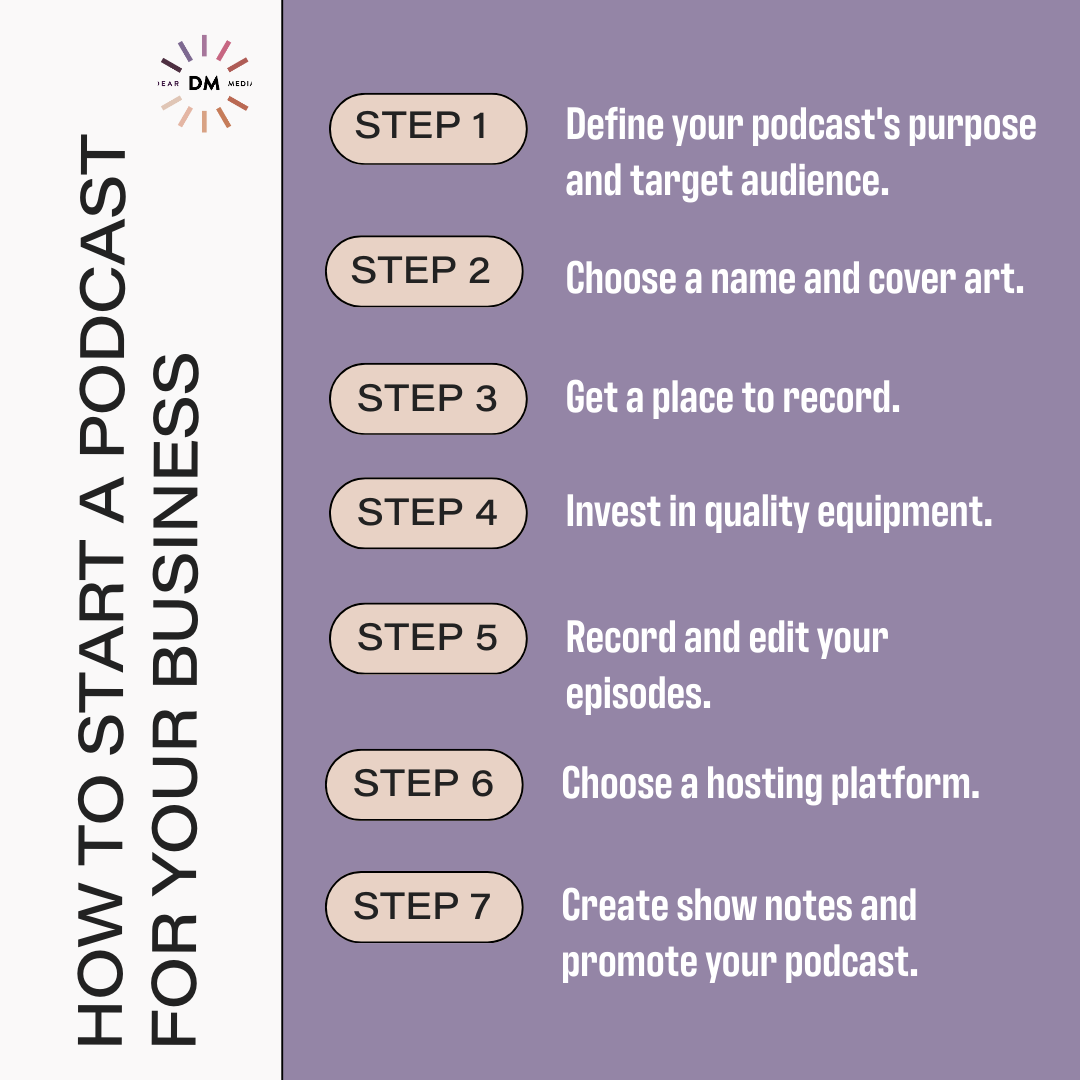
A Release Schedule And The Debut Season Mapped Out:
You can’t go into podcasting with no plan. Alright, technically you can, but it’s not recommended. Will you be dropping a new episode each week or perhaps twice a week? This should be settled early in the game. Are you planning on releasing seasons or is your podcast going on indefinitely? Have your debut season, or at least the first 10 or so episodes planned out before releasing the first episode to give your audience a sense of consistency!
Attractive Cover Art And Logo:
Just like your podcast name, it’s important to have attractive cover art and an eye catching logo to represent your show. This is the key to spark a potential listener’s interest and make a good first impression. The cover art and logo should be eye-catching, appealing to potential listeners, including your title, and host name. Besides having an attractive design, the cover art should be about 1400 x 1400 pixels, in JPG or PNG format. Ideally, it shouldn’t weigh more than 500kb either. This will allow you to upload it to most platforms without any trouble.
Your Podcast’s Description:
No matter which platform you will be uploading your podcast to, it needs to have a catchy description. Think of the name and description as the cover letter and resume of your podcast. It should catch the attention of your target audience. A solid description provides potential listeners with an overview of what your show is all about, as well as a brief introduction to the hosts.
The First Guests Lined Up:
If your podcast has an interview format, it’s a good idea to have the first few guests lined up in advance. Contact them as soon as you know you want to have them on the show and coordinate the dates for the recording session. This will avoid any delays or miscommunications that could throw off your entire plan for your podcast’s first few episodes. If you need more tips, read this post on how to get guests for your podcast.
A Good Media Host:
Media hosts store your digital audio files and allow your audience to listen, subscribe, and download your podcast episodes. Choosing a reliable podcast host is crucial because you can’t just upload your show to iTunes or Spotify with no host to support the audio files. A few of the most well-known hosting platforms are Libsyn, Buzzsprout, Blubrry, Spreaker, and Anchor.

A Plan For Submitting Your Show To Podcast Directories.
Now that you have signed up with a media host, you can submit your podcast to different directories once it’s been fully recorded and edited. A podcast directory is the place where listeners can discover, subscribe to, and even download the show. The most popular ones are Apple Podcasts, Spotify, Stitcher, and Google Play. If you have chosen a reliable media host, then they should have a comprehensive set of guided submissions or auto-submission tools to submit your podcast to the directories. Easy, peasy!
Ready-To-Launch Social Media Accounts:
Every show should have associated social media accounts. If you’re committed to growing your podcast, you’ll want a social media account to distribute and promote your podcast episodes. The basic social media accounts your podcast should have are Instagram and YouTube. If you want to play the field a bit more, throw Facebook, Twitter, and TikTok into the mix. This will ensure your show continues engaging with listeners on a regular basis, even outside of listening to podcast episodes.
If you want to learn more about creating a social media strategy, head over to I Love You So Much with Kenzie Elizabeth: Pivoting in Your Career, Building a Digital Brand, Social Media Strategy, Working with Celebrities & Newsletter Best Practices | Heather Catania.
Also, you can listen to this deep dive into social media on A Thing or Two with Claire and Erica: How We IG (And, You Know, Think About Social Media in General).
A Monetization Strategy:
Is your podcasting goal to eventually make money off your show? If so, you’ll want to have an idea regarding how you’ll make money in the long run. You won’t be able to make money off your podcast right away. But it’s a good idea to have some monetization strategies in mind before you start. Knowing how you want to monetize your podcast might change your goals for starting a podcast in the first place. Either way, always keep in mind that Rome wasn’t built in a day and your podcast won’t be rolling in the dough on day one. These things take time!
A Podcast Launch Strategy:
Starting a podcast is one thing, launching it is a whole other ball game. A successful podcast launch can kick off the vibe for your show. Plus, it can give you the confidence boost you need. Launching a podcast is an exciting and nerve wrecking experience. So do everything you can to feel your best and have the best launch! When you’re ready, use this list of tips for launching on podcast to make sure you have everything in order.
Have any other questions about how to start a podcast?
Podcasting is a booming industry, so you might as well join us! It’s a lot of fun, we promise. This step-by-step podcast starter kit listing all the essentials will definitely get you ready to start your own show ASAP. And you can always come back to our blog if you’re looking for more advice. Will you be starting your own podcast soon? If so, what other questions do you have? Don’t hesitate to reach out or leave a comment.
Finally, if you prefer to listen your way to creating your own podcast, we have just the episode for you! Head over to Friend of a Friend with Olivia Perez: Want To Start A Podcast? Olivia Gives Her Best Career Advice.





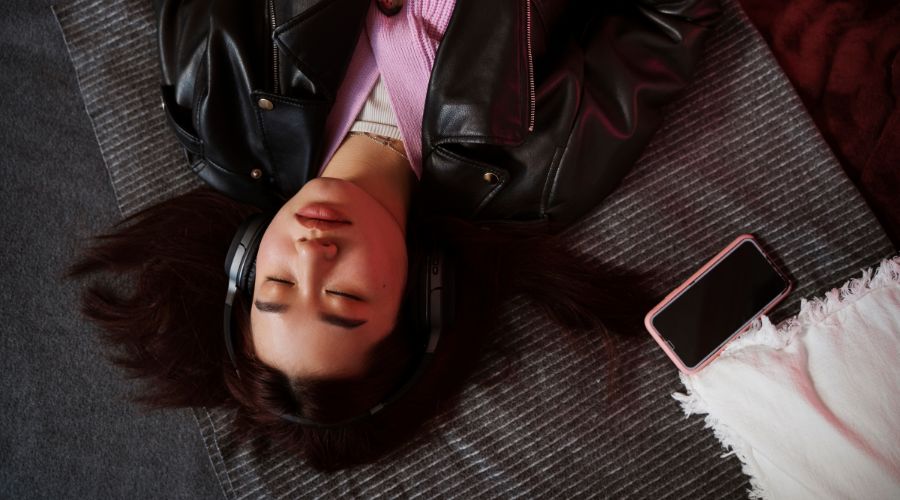

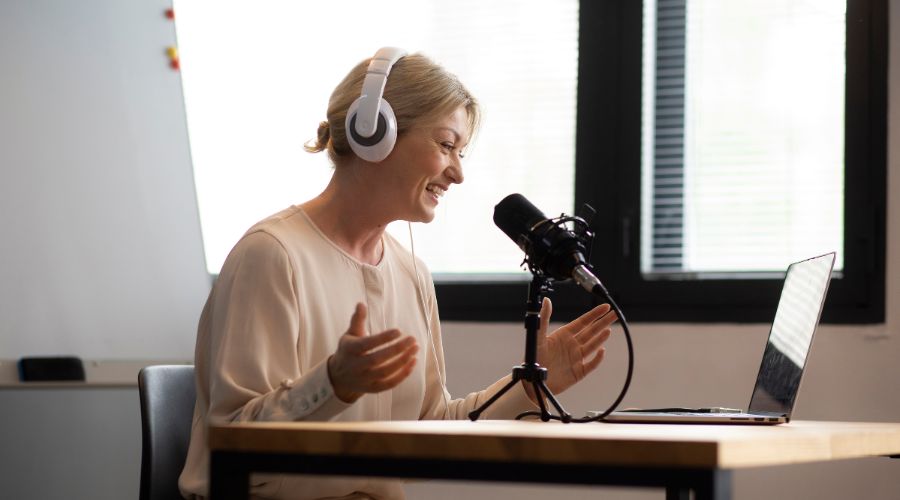
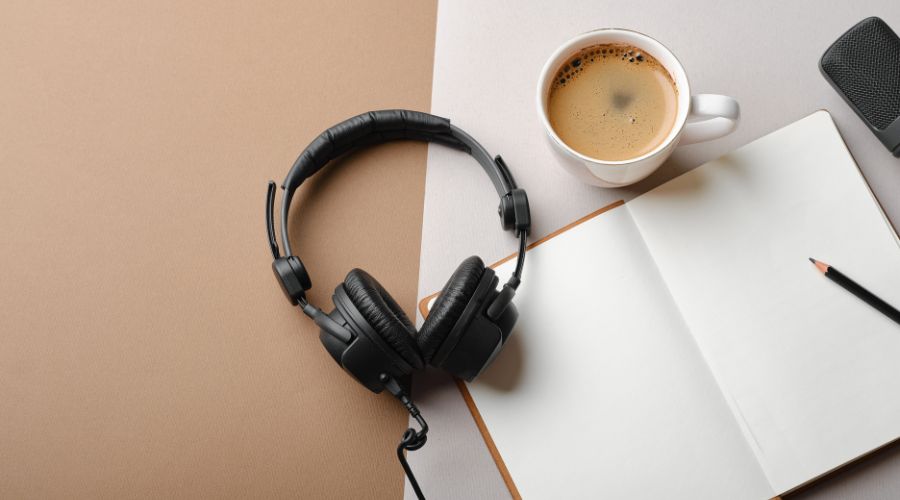











Leave a Reply